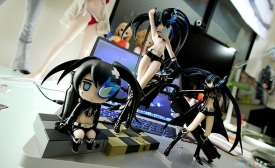cool japan
These heavy hitters all stand to benefit the most from the government's “Cool Japan” initiative, which has less to do with cultural diplomacy than promoting exports of Japanese “contents.” [...] Yasushi Shiina in a Toyo Keizai Online interview. He describes the festival's role as “conveying Japan's appeal internationally through film,” rather than celebrating global cinema.

Takeshi Matsui’s new article, "Nation Branding through Stigmatized Popular Culture: The Cool Japan Craze Among Central Ministries in Japan", has recently been published in Hitotsubashi Journal of Commerce and Management. This article explains how various Japanese ministries are competing to promote “Cool Japan” and make Japanese “content industry” more attractive in order to enhance Japanʼs soft power.
The business potential of the globally popular ancient practice makes the newly created ministry easier to justify.
Douglas McGray used the idea of soft power to describe the "Cool Japan" phenomenon. Cool Japan has become a program supported by the Japanese government and various companies that promotes modern Japanese culture such as anime and manga abroad.
The more Japan’s global relevance in economic, political and military terms seems to decline, the more it cares about projecting soft power.
Attending the Association of Asian Studies conference in Singapore last week, I realized that Japan’s global image is not what it might be. Prime Minister Shinzo Abe says Japan is back, but doubts are spreading about the version of Japan he is promoting. It appears that Abe’s energetic regional diplomacy has been undercut by his awkward views on history and failure to deliver on structural reforms.







